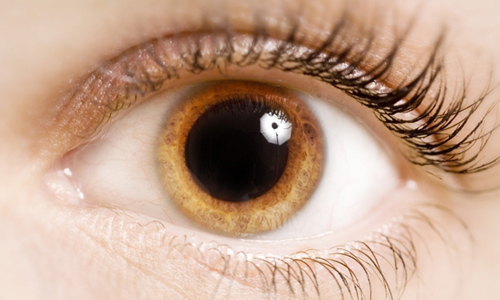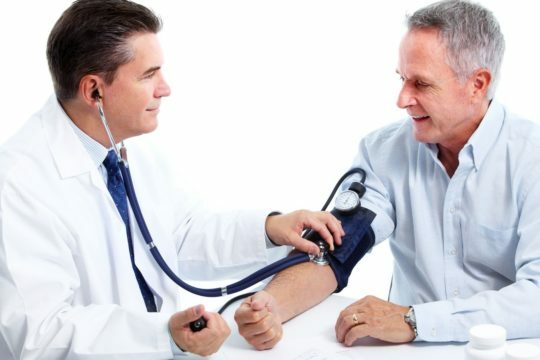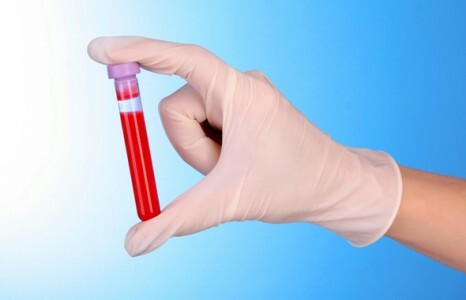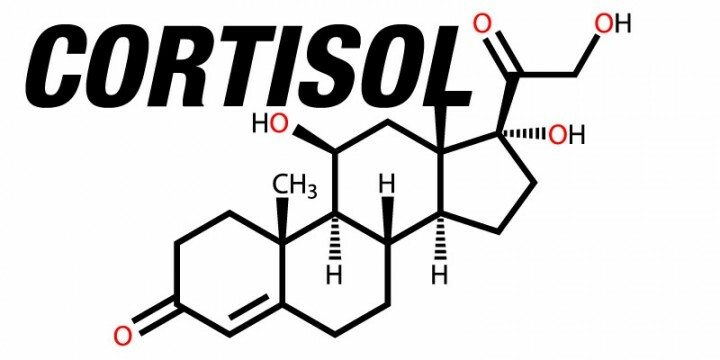Adrenaline is one of the hormones produced in the human body. It is secreted by the adrenal glands in situations that people call stressful. In other words, this hormone helps to mobilize and get additional physical and psychological opportunities to overcome the situation that has arisen. Without adrenaline, a person will never experience that burst of energy that helps to cope with all sorts of difficulties in this life. But it should not be allowed that the level of adrenaline in the blood is constantly increased, this has a very negative impact on health.
How can we get out of this situation, when stresses are inevitable and they need to be overcome, but at the same time we want to not lose our health? How to reduce the level of adrenaline, while not losing the ability to actively act in emergency situations?
A hormone without which it is impossible to survive

When a person gets into a situation called stressful, he needs to find a way out as quickly as possible, and how to use his abilities more efficiently. Here, in this case, the adrenal glands throw into the blood adrenaline - a powerful stimulant of brain activity, which allows you to mobilize all body forces in the shortest time to solve the problem. This hormone allows for a while to become a "superman" and cope with such a psychological, or physiological load, with which you can hardly cope in the usual state.
The purpose of adrenaline is to mobilize a person, to "spur" its hidden powers and capabilities in order to overcome the extreme situation and help to survive in it. This substance-mediator is allocated at dangers, traumas, at any boundary natural cataclysms, during sports competitions and so forth. In order for this reaction to take place, nature has provided adrenaline receptors, which are equipped with all the cells of the human body. Increasing the level of adrenaline in the blood gives the cells the ability to react to something in a new way. This is man's ability to survive.
But the action of adrenaline is limited in time, because its purpose is to "get" the body, to give it super strength. Therefore, adrenaline as a drug is used in antishock medicine, when it is necessary to start the fading or stopped functions of the body.
Reasons for Adrenaline rush is a reaction to stressful situations: - danger,
- shock state,
- severe injury,
- sudden psychological shock,
- extreme environment,
- severe pain,
- significant increase or decrease in body temperature,
- some types of occupationsport.
With some diets, you can also observe periodic adrenaline emissions - for example, with a low-carb diet. The reason is that for the body insufficient supply of nutrients is also a stressful situation. And he forces the adrenal glands to produce adrenaline in the hope that in this way additional resources will be found that will help increase glucose in the blood.
Symptoms of
When the body emits adrenaline, certain physiological mechanisms are triggered: the
- increases the frequency and strength of the heartbeat, which allows more "active" and larger "supply" of blood to tissues;
- there is a change in the musculature of the vessels;
- relaxes the musculature of the intestine;
- dilates the pupils.

If epinephrine is released into the blood for a long time, there may be an increase in the myocardium, as well as skeletal muscle. On the background of intense protein metabolism, exhaustion of the body can begin.
On subjective sensations, a person can also determine an adrenaline rush. Symptoms are as follows:
- tachycardia,
- sharp release of a large amount of sweat,
- breathing disorder( shortness of breath, rapid breathing),
- impairment of vision due to spasm of accommodation( lens of the eye loses the ability to "sharpen"),
- headache and heart pain.
With frequent and turbulent adrenaline secretion, a person begins to experience chronic fatigue, it is already difficult for him to do routine work, he develops insomnia. Along with this, there is an increase in the pain threshold: the body becomes less sensitive to pain.
All this has a very negative effect on health, and if a person observes these symptoms, it's time to think about how to lower adrenaline in the blood. If it is constantly allocated, then:

- develops hypertension;
- braking processes are intensified, as in contrast to adrenaline, the production of noradrenaline begins to bring the organism into a state of hormonal equilibrium;
- increases the risk of a stroke or heart attack in a completely healthy person due to a sharply increasing burden on the heart and blood vessels;
- and most terrible - there may be a condition called adrenal insufficiency, in which cardiac arrest is possible.
In addition, the excess of adrenaline renders the same effect on the body as large doses of alcohol. With all the ensuing consequences.
It is possible to accurately determine whether elevated adrenaline is present, using blood and urine tests. The accuracy of the analysis is assured if the following requirements are met for three days before the tests are submitted:
- not to drink,
- not to smoke,
- not to drink alcohol and drugs containing alcohol,
- to avoid stress and heavy physical activity,
- not to take caffeine, nitroglycerin and someother drugs( the doctor should give a complete list),
- and also do not eat bananas and chocolate.
How to reduce
Avoid the constant adrenaline emissions and the harmful effects of adrenaline on the body can be both without the help of medications, and medicamental methods.

If you try to do without drugs, then, first of all, you need to protect yourself from unnecessary stressful situations, from unnecessary increased loads, both physiological and psychological. It is very appropriate for people's wisdom, which says: do not bother with trouble. You can not force the body to always work at the limit, you need to provide him with a proper rest, sleep and food.
You have to go to a healthy lifestyle with the established mode of sleep and nutrition. And even such seemingly trifles, as usual fizzaryadka every morning and a walk in the fresh air before going to bed, have an extremely beneficial effect on the body. If you want, you can do yoga, auto-training. This will help cope with stress, which, of course, is completely unlikely to be avoided.
If you need a drug-solving solution, then medicines should be prescribed only by a doctor. Independent drug treatment can cause irreparable harm to health, and, in addition, drugs can reduce the effect of adrenaline, but do not block its production by the adrenal glands. Therefore, it is much better to drink phyto-tea with mint, motherwort, and also take baths with infusions of herbs before going to bed.
Related records
- danger,
- shock state,
- severe injury,
- sudden psychological shock,
- extreme environment,
- severe pain,
- significant increase or decrease in body temperature,
- some types of occupationsport.
With some diets, you can also observe periodic adrenaline emissions - for example, with a low-carb diet. The reason is that for the body insufficient supply of nutrients is also a stressful situation. And he forces the adrenal glands to produce adrenaline in the hope that in this way additional resources will be found that will help increase glucose in the blood.
Symptoms of
When the body emits adrenaline, certain physiological mechanisms are triggered: the
- increases the frequency and strength of the heartbeat, which allows more "active" and larger "supply" of blood to tissues;
- there is a change in the musculature of the vessels;
- relaxes the musculature of the intestine;
- dilates the pupils.

If epinephrine is released into the blood for a long time, there may be an increase in the myocardium, as well as skeletal muscle. On the background of intense protein metabolism, exhaustion of the body can begin.
On subjective sensations, a person can also determine an adrenaline rush. Symptoms are as follows:
- tachycardia,
- sharp release of a large amount of sweat,
- breathing disorder( shortness of breath, rapid breathing),
- impairment of vision due to spasm of accommodation( lens of the eye loses the ability to "sharpen"),
- headache and heart pain.
With frequent and turbulent adrenaline secretion, a person begins to experience chronic fatigue, it is already difficult for him to do routine work, he develops insomnia. Along with this, there is an increase in the pain threshold: the body becomes less sensitive to pain.
All this has a very negative effect on health, and if a person observes these symptoms, it's time to think about how to lower adrenaline in the blood. If it is constantly allocated, then:

- develops hypertension;
- braking processes are intensified, as in contrast to adrenaline, the production of noradrenaline begins to bring the organism into a state of hormonal equilibrium;
- increases the risk of a stroke or heart attack in a completely healthy person due to a sharply increasing burden on the heart and blood vessels;
- and most terrible - there may be a condition called adrenal insufficiency, in which cardiac arrest is possible.
In addition, the excess of adrenaline renders the same effect on the body as large doses of alcohol. With all the ensuing consequences.
It is possible to accurately determine whether elevated adrenaline is present, using blood and urine tests. The accuracy of the analysis is assured if the following requirements are met for three days before the tests are submitted:
- not to drink,
- not to smoke,
- not to drink alcohol and drugs containing alcohol,
- to avoid stress and heavy physical activity,
- not to take caffeine, nitroglycerin and someother drugs( the doctor should give a complete list),
- and also do not eat bananas and chocolate.
How to reduce
Avoid the constant adrenaline emissions and the harmful effects of adrenaline on the body can be both without the help of medications, and medicamental methods.

If you try to do without drugs, then, first of all, you need to protect yourself from unnecessary stressful situations, from unnecessary increased loads, both physiological and psychological. It is very appropriate for people's wisdom, which says: do not bother with trouble. You can not force the body to always work at the limit, you need to provide him with a proper rest, sleep and food.
You have to go to a healthy lifestyle with the established mode of sleep and nutrition. And even such seemingly trifles, as usual fizzaryadka every morning and a walk in the fresh air before going to bed, have an extremely beneficial effect on the body. If you want, you can do yoga, auto-training. This will help cope with stress, which, of course, is completely unlikely to be avoided.
If you need a drug-solving solution, then medicines should be prescribed only by a doctor. Independent drug treatment can cause irreparable harm to health, and, in addition, drugs can reduce the effect of adrenaline, but do not block its production by the adrenal glands. Therefore, it is much better to drink phyto-tea with mint, motherwort, and also take baths with infusions of herbs before going to bed.



